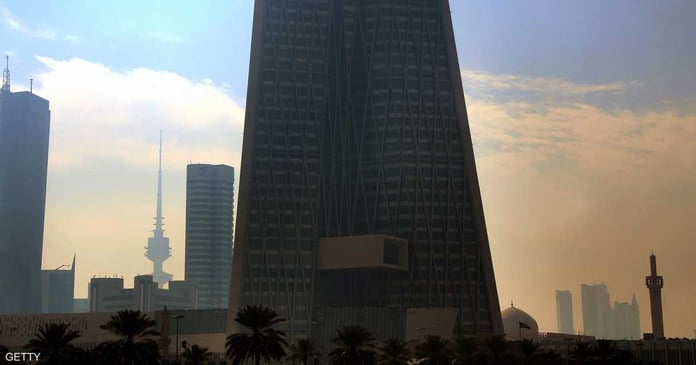The agency confirmed that its stable expectations for the sector were reflected in the continued expansion of the country’s non-oil economy in 2023 and 2024, noting that Kuwaiti banks would benefit from credit growth of around 3 % this year, with the government’s continued commitment to development plans, in addition to government capital spending on infrastructure projects and major projects, will drive demand for loans.
In its report, the agency said that the quality of local bank lending in Kuwait will remain good for the foreseeable future, despite slight risks in the small project sector, as interest rates rise.
“Moody’s” said in its report that the Kuwaiti banking sector’s large exposure to real estate and the stock market are weaknesses for the sector, but abundant financial loss provisions and strong capital provide a strong shield against downside risks. this exposure, indicating that the profitability of Kuwaiti banks will come under slight pressure, but it will remain stable. It is supported by strong efficiency, noting that the funding of Kuwaiti banks is based on fixed and stable deposit flows and strong liquidity.
She explained that economic growth in Kuwait, strong bank capital and ample liquidity support her stable expectations for the country’s banks, noting that government spending will support Kuwait’s non-oil GDP growth of 3% in 2023.
Moody’s added that the concentration of bank lending in Kuwait on borrowers and individuals, and certain business sectors, particularly real estate, whose loans constitute 18% of the total loan portfolio, may expose the country’s banks to risk of a small number of failures or a shock in one of the sectors.
However, consumer loans, which make up around 35% of the total loan portfolio, are well protected as they are largely targeted at government employees, who enjoy a high level of job security.
The agency added that the exposure of some Kuwaiti banks to a weaker operating environment, such as Turkey and Egypt, could lead to risks for their businesses.
Moody’s said the capital of Kuwaiti banks would remain intact, mainly due to the central bank’s conservative approach in applying Basel 3 capital adequacy standards, which ensures that Kuwaiti banks have strong financial reserves, explaining that moderate loan growth and internal capital generation by retaining profits will allow Kuwaiti banks to maintain capital stability over the next 12 to 18 months.
Despite expected pressures on the profit margins of Kuwaiti banks from rising interest rates, which are increasing funding costs more rapidly, while competition between banks is driving down loan yields while the costs of deposits (especially those related to government) remain high, the agency believes loan provisions are very high, supporting its profitability.
And “Moody’s” estimated that liquid assets constitute more than 30% of actual bank assets and will remain sufficient to protect Kuwaiti banks from the risks associated with a heavy reliance on government-related deposits, stressing that Kuwaiti banks will not do not have an adequate supply of public funds obligations due to the failure of the adoption of the law on public debt by Parliament after.
This means that most local currency bank liquidity is invested in short-term instruments, including central bank deposits and Sharia-compliant liquidity facilities for Islamic banks operating in the country.
Moody’s affirmed the strong will of the Kuwaiti government to support the banking sector in the event of failure, and the government’s ability to do so will remain strong, as evidenced by Kuwait’s solid rating at A1, with a stable outlook, explaining that most of Kuwaitis bank deposit ratings are long-term with the agency An increase of 4 credit ratings from benchmark credit ratings due to government support.
The agency said Kuwaiti banks have large provisions to cover loan losses, amounting to 270% of non-performing loans until the end of 2022, partly due to the Bank’s strict policy. central in terms of provisions, which offers great efficiency against any possible default in payment. .
Moody’s confirmed that the funding of Kuwaiti banks will remain strong with ample liquidity, and Kuwaiti banks are mainly funded by the stable flow of deposits, which is credit strength for banks, explaining that customer deposits accounted for 73% of the total deposits until the end. from last year.
The agency confirmed that the quality of Kuwaiti bank loans will remain solid, and that economic growth and a boom in the real estate market will lead to maintaining stable loan stability over the next 12 to 18 months, noting that non-performing loans from Kuwaiti banks were very low at 1.6% in 2022, down slightly from 1.7% in 2021.
Moody’s expects Kuwaiti banks to face slight pressure on their profitability, but they will remain stable and are likely to maintain strong profitability, as net income from assets will range from 1% to 1.2 % over the current year and next year. , noting that the efficiency of Kuwaiti banks will remain high and that Kuwait’s volume does not require banks to expand their branches.
Read the Latest World News Today on The Eastern Herald.


